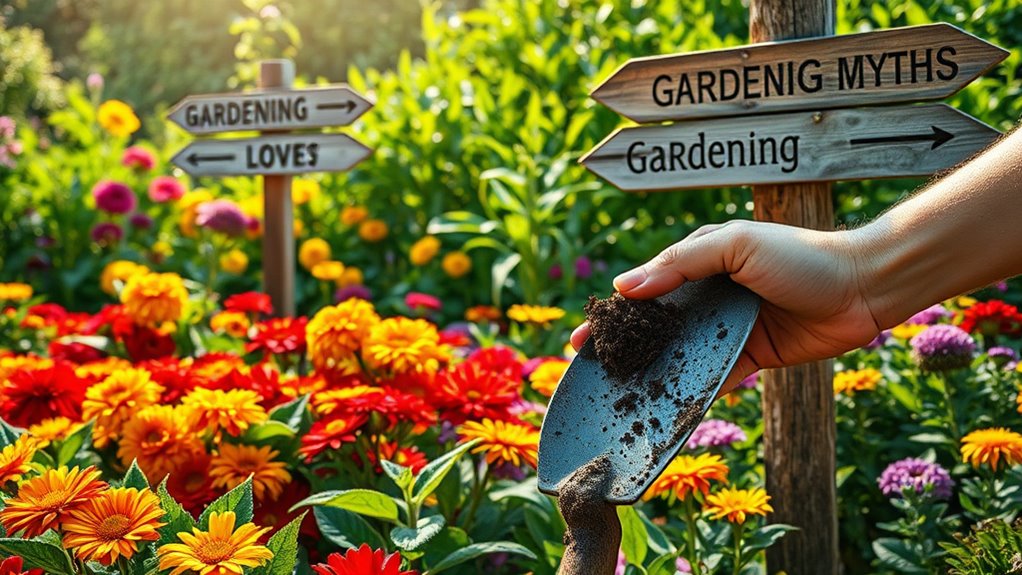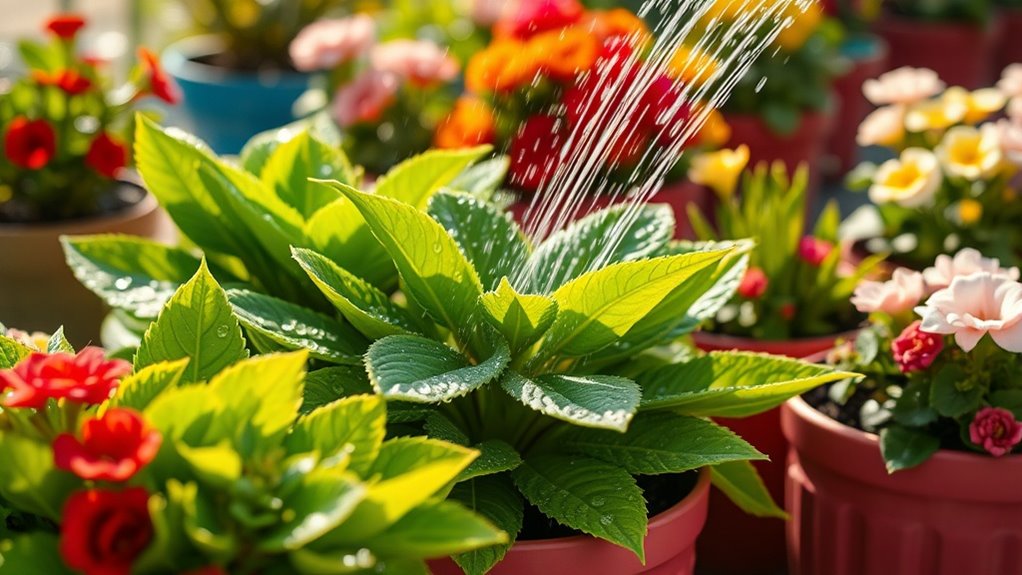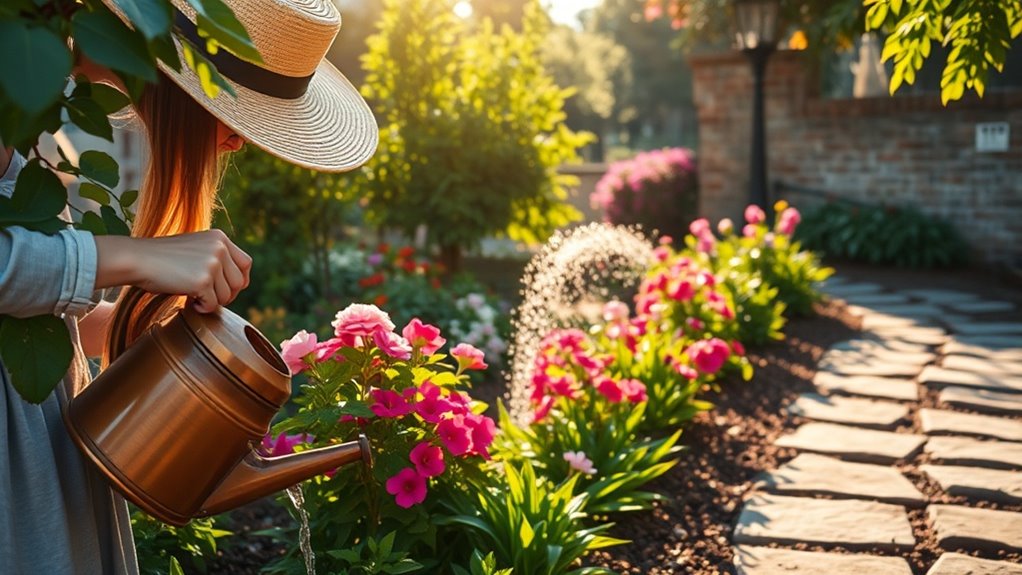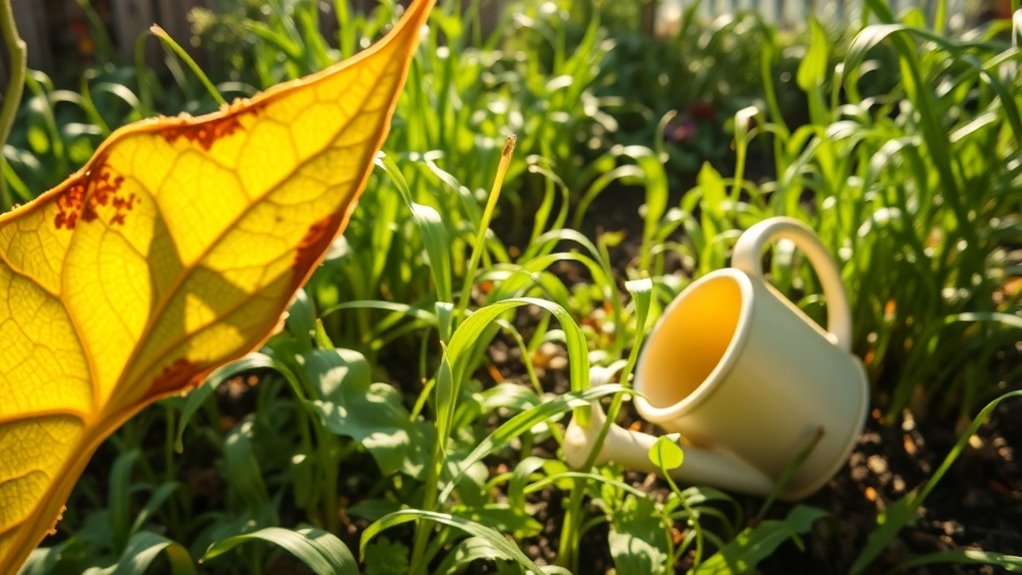Are These Gardening Myths Holding You Back.
Just like the classic tale of the tortoise and the hare, gardening success isn’t always about speed or innate talent. You might believe you’ve got to be born with a green thumb or that all plants crave sunlight to thrive. But what if those beliefs are holding you back? Discover the truth behind common gardening myths that could change your approach and, ultimately, your garden’s fate.
Key Takeaways
- Believing you need a green thumb can deter you; success comes from knowledge, patience, and practice with simple plants.
- Many shade-loving plants thrive without direct sunlight, so explore diverse options for your garden.
- Daily watering is a myth; most plants prefer deep, less frequent watering to prevent root rot.
- Organic gardening isn’t complicated; start with composting and natural pest solutions to simplify your approach.
- Healthy soil nurtures plants; focus on enriching it with organic matter rather than relying solely on fertilizers.
Myth 1: You Need a Green Thumb to Garden Successfully
Have you ever felt discouraged from gardening because you believe you lack a “green thumb”? This gardening myth’s been debunked!
Success in gardening doesn’t hinge on some mystical ability; it’s all about knowledge, patience, and practice.
You can start small, choosing easy-to-grow plants like herbs or succulents.
With a little research, you’ll learn about soil types, watering needs, and pest management.
Each plant offers unique challenges, but overcoming them will build your confidence. Additionally, understanding common gardening myths can help you avoid ineffective practices and make better choices for your garden.
Myth 2: All Plants Need Direct Sunlight
What if you could create a thriving garden without flooding your plants with direct sunlight?
Many believe all plants crave full sun, but that’s far from the truth.
Shade-loving plants, like ferns and hostas, thrive in lower light conditions, adding lush greenery to your garden.
Even some flowering plants, such as impatiens, flourish in partial shade.
By strategically placing these beauties, you can create a vibrant garden oasis.
Don’t let the myth of sunlight limit your gardening potential.
Explore your options and embrace the beauty of shade-loving plants.
In fact, many resilient low-light indoor plants can also thrive in similar conditions, providing an array of options for any space.
Your garden can be a diverse and thriving space, regardless of sunlight exposure!
Myth 3: You Should Water Your Plants Every Day
Many gardeners fall into the trap of thinking daily watering is the key to a healthy garden.
In reality, most plants thrive with deep, less frequent watering.
Overwatering can lead to root rot, drowning your plants and stunting their growth.
Instead, check the soil moisture: if it’s dry an inch down, it’s time to water.
Aim for early mornings or late afternoons to minimize evaporation.
Remember, each plant has unique needs, so observe them closely. Additionally, soil moisture levels play a crucial role in determining how much and how often you should water your garden.
Myth 4: Organic Gardening Is Too Complicated
Isn’t it surprising how often people believe that organic gardening is a complex endeavor reserved for experts?
In reality, it’s simpler than you think. You can start with basic techniques, like composting kitchen scraps or using natural pest repellents. For instance, utilizing homemade fertilizer from your kitchen scraps can significantly enrich your garden soil.
Embracing organic methods fosters a healthier garden and environment. You don’t need fancy tools or extensive knowledge—just a willingness to learn and experiment. With patience and observation, you’ll discover what works best for your plants.
Myth 5: Fertilizers Are Always Necessary for Healthy Plants
While exploring the world of organic gardening, you might hear the common belief that fertilizers are always necessary for healthy plants. However, this isn’t entirely true.
Your soil’s health is key; rich, organic matter can often provide all the nutrients plants need.
By focusing on composting and mulching, you can enhance soil life and structure naturally. Natural tricks for healthier soil can further improve your garden’s vitality and resilience.
Plants thrive when given the right conditions, such as adequate sunlight and water.
So, before reaching for that bag of fertilizer, consider nurturing your soil first.
Embracing this approach can lead to vibrant, resilient plants without relying solely on commercial fertilizers.





